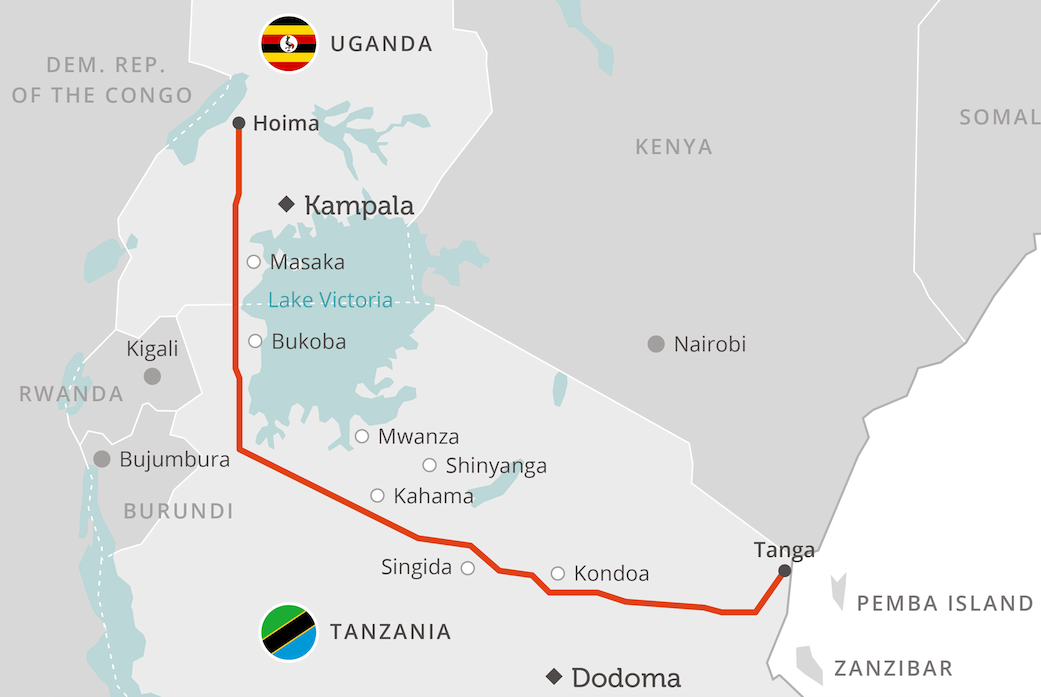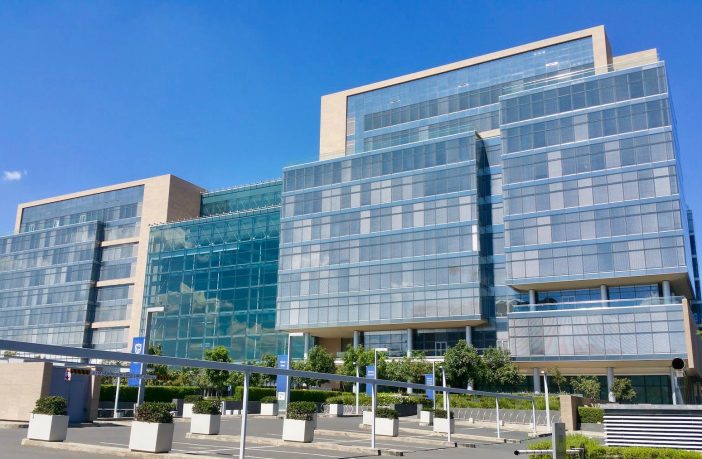- The StopEACOP Campaign is appalled by Standard Bank’s decisioto help finance the East African Crude Oil Pipeline (EACOP) project and condemns this decision in the strongest possible terms.
- This decision follows a years-long review process, during which environmental and social concerns raised by numerous stakeholders were evidently ignored.
The $5 billion EACOP project, spearheaded by TotalEnergies, aims to transport crude oil from Uganda’s oil fields to a terminal in Tanga, Tanzania. Despite significant opposition from affected communities and environmental and human rights groups, Standard Bank, Africa’s largest lender, has decided to support this disastrous project.
Standard Bank chair Nonkululeko Nyembezi stated in a recent interview that they had conducted comprehensive environmental and social due diligence. However, the claim contradicts the project’s grave climate, environmental and human rights risks. The decision of Standard Bank is also at odds with the assessment of its peers, who have ruled out support for the EACOP for climate, environmental, and social concerns.

East African Crude Oil Pipeline map. Image credit: EACOP
Standard Bank’s decision ignores local opposition and human rights abuses
In the last month alone, 11 pipeline critics have been arrested in Uganda and Tanzania after expressing their concerns about the project. In addition, one of the community leaders from the Kingfisher region in Uganda was abducted by the Uganda Peoples’ Defense Forces, bringing condemnation from the UN Special Rapporteur on Human Rights Defenders. Standard Bank’s untimely announcement of their decision to finance EACOP, in the midst of a brutal crackdown on human rights, environmental and land defenders in Uganda and Tanzania, illustrates their level of detachment from the realities and experiences of communities on the ground and calls into question their claim to have done thorough due diligence.
Environmental and human rights groups have persistently highlighted the potential hazards of the controversial EACOP, including severe impacts on wildlife habitats, the displacement of communities, and the exacerbation of climate change through increasedgreenhouse gas emissions. Many field investigation reports, including a recent Human Rights Watch report, have also documented and denounced the inadequate compensation and significant disruption experienced by residents displaced by the pipeline’s construction. Against this backdrop, Standard Bank’s decision to finance EACOP shows blatant disregard for the voices and rights of the communities in Uganda and Tanzania who will bear the brunt of the environmental and social devastation caused by this project.
Standard Bank cannot feign ignorance in relation to the concerns surrounding EACOP. It has faced consistent pressure from communities and climate and social justice organisations and groups in South Africa who have demonstrated outside the bank’s offices in Rosebank, Johannesburg on numerous occasions. These demonstrations, including a large protest with hundreds of participants on the day of the bank’s AGM in 2023, a 3-day-long occupation of the bank’s entrance in September of the same year, and weekly pickets held outside the bank’s parking lot by Extinction Rebellion, sought to bring the demands and experiences of EACOP-affected communities to their attention.
Standard Bank has refused to engage in meaningful and constructive dialogue and instead, its response has been characterized by repression and increased militarisation. The South African Police Service has also intervened to protect the interests of the bank and has arrested peaceful demonstrators on two occasions. It is a stark demonstration of Standard Bank’s prioritization of profit over people and the planet and its lip-service commitment to constructive dialogue and meaningful engagement with frontline communities and other key stakeholders.
Standard Bank is also ignoring clear business risk
The decision to bankroll the project also casts doubt on Standard Bank’s assessment of the business and reputational risks stemming from the risks to local communities, environment and climate posed by the project.
Standard Bank’s decision comes after major financiers and insurers from North America, Europe, and Japan have publicly ruled out support for EACOP due to global outcry over the harmful project. The expected finance from China has also been delayed, while the Chinese state-owned insurers and banks have taken prolonged time to assess the outstanding risks. As a result, the EACOP project is facing significant challenges and project sponsors are reportedly in a cash crisis to fill the funding gap, which threatens to stall the construction.
These delays come as a result of the immense pressure that potential financiers have come under from communities, civil society, the international community and even shareholders and investor groups who express grave concern over the catastrophic socio-economic, biodiversity and climate change risks of the project.
Standard Bank’s decision to finance the EACOP project starkly contradicts industry trends, as leading banks and insurers have distanced themselves from this controversial initiative. This decision exposes Standard Bank to significant risks, including the potential for stranded assets, especially as the global economy transitions towards clean energy solutions. Furthermore, with Uganda already facing a severe debt crisis, worsened by the country’s oil induced borrowing spree, the environmental and social costs associated with EACOP could precipitate an economic disaster for the people of Uganda as well as financiers and their shareholders who opt to engage with this project.
It is clear that investing in EACOP threatens the stability of vulnerable communities and jeopardizes the financial health and reputational integrity of those who support it. A 2022 report assessing the EACOP and associated oil fields against internationally recognized environmental and human rights standards for financial institutions found numerous violations, putting banks at risk if they sign on to support the project. The assessment, undertaken by the Africa Institute for Energy Governance (AFIEGO), Inclusive Development International (IDI) and BankTrack, suggests that the project is not in compliance with many of the criteria set forth in the Equator Principles and the Environmental and Social Performance Standards of the International Finance Corporation (IFC), two internationally recognized standards for responsible finance.
We demand that Standard Bank review and rescind its decision to finance the EACOP project immediately. While it may be too late for Standard Bank to redeem its supposed commitment to people and the planet, there is still time for other potential lenders, particularly Chinese state-owned banks, to demonstrate their dedication to human rights and sustainability by refusing to support EACOP. We call upon the global community to continue its unwavering support for the StopEACOP campaign and the communities on the frontlines. It is not too late to halt this disastrous project and prevent the extensive environmental, social, and economic damage it promises to inflict.
Source: StopEACOP Campaign
Disclaimer: The articles and videos expressed in this publication are those of the authors. They do not purport to reflect the opinions or views of Green Building Africa, our staff or our advertisers. The designations employed in this publication and the presentation of material therein do not imply the expression of any opinion whatsoever on the part Green Building Africa concerning the legal status of any country, area or territory or of its authorities.













